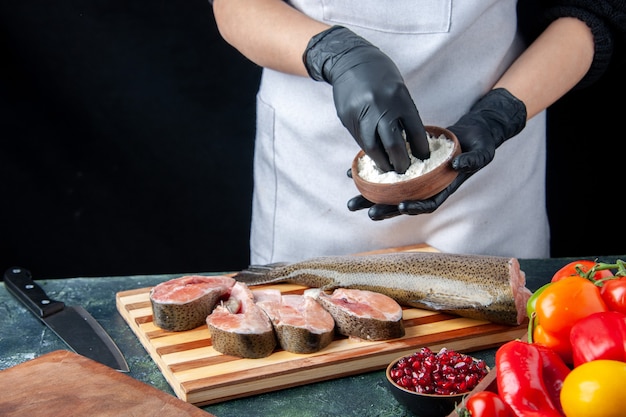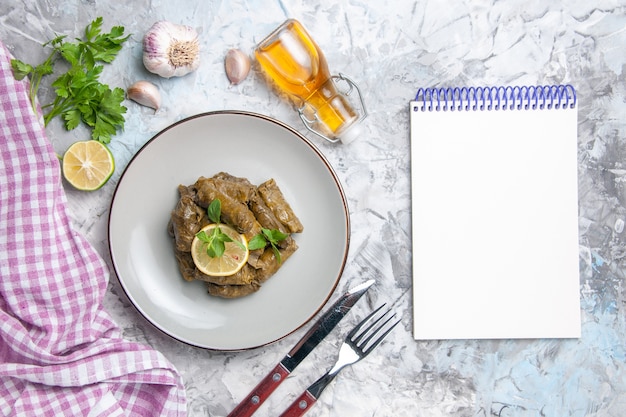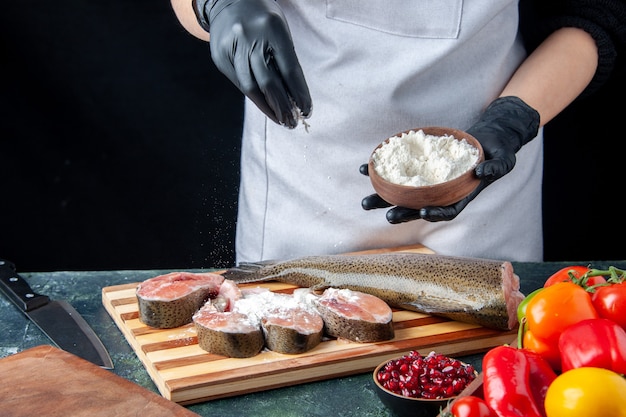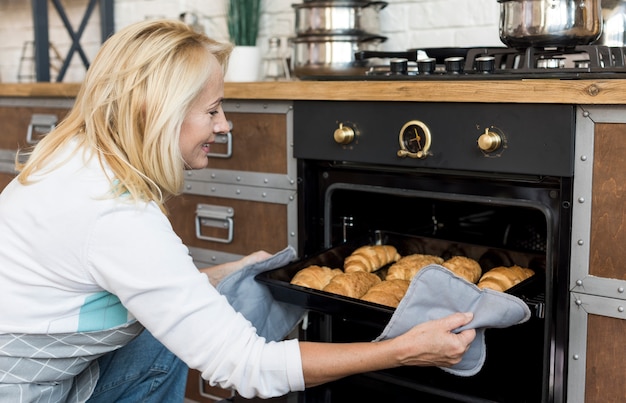(Part 1) Choosing the Right Cod

Before you can start whipping up culinary magic, you need to find yourself some stellar cod. Now, you can't just grab the first fish you see at the supermarket. You want to ensure it's fresh and top-notch, so you end up with a dish that truly sings. Here's how to pick the best cod:
What to Look For
Imagine you're a detective on the hunt for the freshest catch. Here are the clues you should be looking for:
- Freshness: The fish should have bright, shiny eyes that sparkle like the sea itself. Its flesh should be firm and springy, like a well-toned athlete, not soft and mushy. And its scent? Fresh, not fishy.
- Color: A healthy cod will have a pearly white or slightly pink color, similar to a seashell. Avoid any fish that's dull or discolored, as it might not be at its peak.
- Texture: Give the cod a gentle press. It should feel firm to the touch, not flabby or mushy. If it's too soft, it might have been sitting around for a while.
- Smell: A fresh cod has a slightly sweet, briny scent, reminiscent of the ocean breeze. If it smells ammonia-like or overly fishy, it's a red flag and should be avoided.
Types of Cod
There are a few different types of cod that might tempt your taste buds. The most common is Atlantic cod, which is often found in the UK. But you might also encounter Pacific cod or Alaskan cod. While they all taste similar, Pacific cod tends to be a bit milder in flavor. It's like the calm, collected cousin of its Atlantic counterpart.
Where to Buy
I always recommend buying your cod from a reputable fishmonger. They're the experts, and they can give you valuable advice on choosing the freshest fish. They're like treasure hunters who know exactly where to find the best catches! You can also find cod in supermarkets, but be sure to check the freshness date to ensure you're getting the best quality.
(Part 2) Preparing Your Cod

You've got your beautiful cod in hand, now it's time to prepare it for its culinary debut. It's a fairly straightforward process, but a few key steps will ensure your cod shines in the final dish.
Cleaning and Scaling
If you've bought whole cod, it's time to give it a little spa treatment. Don't be intimidated; it's easier than it looks! First, use a sharp knife to carefully remove the head and tail. Then, using a fish scaler, remove the scales. If you don't have a scaler, a blunt knife will work just fine. Next, gut the fish by making a cut along the belly and removing the entrails. You're now ready for the next step!
Skinning
Cod skin, while a protective layer for the fish, isn't the most appealing in a culinary sense. So, it's best to remove it. Simply score the skin along the length of the fillet and then gently pull it off.
Cutting and Portioning
Now it's time to cut your cod into manageable portions. If you're using fillets, simply slice them into the size you need for your chosen recipe. If you're working with a whole cod, you can cut it into thick slices or leave it whole, depending on how you plan to cook it.
Marination
Marination isn't a necessity, but it can elevate your cod to new heights of flavour. You can marinate it in anything from a simple blend of olive oil and lemon juice to a more complex mixture of soy sauce and ginger. Just remember, don't overdo it! Over-marination can make the fish tough, so keep it brief.
(Part 3) Cooking Cod: The Basics

Now for the exciting part: cooking! Cod is incredibly forgiving, so it's hard to go wrong. Here are some basic cooking methods to get you started:
Baking
Baking cod is a simple and foolproof method, perfect for weeknight dinners or relaxed gatherings. Preheat your oven to 375°F (190°C). Place your cod fillets on a baking sheet lined with parchment paper for easy cleanup. Season with salt, pepper, and any other herbs or spices that tickle your fancy. Bake for 15-20 minutes, or until the fish is flaky and cooked through. It's a truly delightful experience!
Grilling
Grilling cod is a fantastic way to add a smoky touch. Preheat your grill to medium heat. Brush your cod fillets with olive oil and season with salt and pepper. Grill for 3-5 minutes per side, or until cooked through. The result? A beautifully charred exterior and a juicy, flavorful interior.
Frying
Pan-frying cod is a quick and easy way to achieve a crispy exterior. Heat some oil in a large skillet over medium heat. Season your cod fillets with salt and pepper. Place the fillets in the skillet and cook for 3-5 minutes per side, or until cooked through. The result is a golden-brown, crispy treat.
Poaching
Poaching cod is a gentle and elegant method that results in tender, flavorful fish. Bring a pot of water to a simmer. Add a few bay leaves, peppercorns, and a pinch of salt for subtle depth of flavour. Gently lower your cod fillets into the water and cook for 5-7 minutes, or until cooked through. It's a wonderfully delicate way to showcase the cod's natural flavour.
(Part 4) Delicious cod recipes
Now, let's get our hands dirty with some recipes! Here are a few of my personal favourites, each promising a delightful culinary adventure.
Classic baked cod with Lemon and Herbs
This is a simple and elegant recipe, perfect for a weeknight dinner or a special occasion. You'll need:
- 1 lb cod fillets
- 1 tablespoon olive oil
- 1 lemon, sliced
- 2 cloves garlic, minced
- 1/4 cup chopped parsley
- Salt and pepper to taste
Preheat your oven to 375°F (190°C). Place the cod fillets in a baking dish. Drizzle with olive oil and season with salt and pepper. Top with the lemon slices, garlic, and parsley. Bake for 15-20 minutes, or until the fish is flaky and cooked through. The combination of lemon, garlic, and parsley creates a symphony of flavors that'll leave you wanting more.
Crispy Cod with Tartar Sauce
This is a classic British pub dish that's always a crowd-pleaser, guaranteed to make you feel warm and fuzzy. You'll need:
- 1 lb cod fillets
- 1/2 cup all-purpose flour
- 1 egg, beaten
- 1/2 cup breadcrumbs
- Salt and pepper to taste
- vegetable oil for frying
- Tartar sauce
Season the cod fillets with salt and pepper. Dredge them in flour, then dip them in the beaten egg, and finally coat them in breadcrumbs. Heat the oil in a large skillet over medium heat. Fry the cod fillets for 3-5 minutes per side, or until golden brown and cooked through. Serve with tartar sauce, the perfect complement to the crispy cod.
Cod with Chorizo and Tomato Sauce
This is a Spanish-inspired dish that's bursting with flavor, guaranteed to transport you to sunny shores. You'll need:
- 1 lb cod fillets
- 1/2 cup chorizo sausage, sliced
- 1 onion, chopped
- 2 cloves garlic, minced
- 1 (28-ounce) can crushed tomatoes
- 1/2 cup white wine
- 1/4 cup chopped fresh parsley
- Salt and pepper to taste
Heat the chorizo in a large skillet over medium heat. Cook until browned, releasing its smoky aroma. Remove from the skillet and set aside. Add the onion and garlic to the skillet and cook until softened, allowing their sweetness to bloom. Add the crushed tomatoes, white wine, and parsley. Bring to a simmer and cook for 15 minutes, or until the sauce has thickened, creating a rich and vibrant base. Add the cod fillets to the sauce and cook for 5-7 minutes, or until cooked through. Serve with crusty bread for a truly satisfying meal.
Cod with Coconut Milk and Curry Paste
This is a delicious and easy Thai-inspired dish, a taste of the exotic right in your kitchen. You'll need:
- 1 lb cod fillets
- 1 (14-ounce) can coconut milk
- 2 tablespoons green curry paste
- 1/2 cup chopped bell pepper
- 1/4 cup chopped fresh cilantro
- Salt and pepper to taste
Combine the coconut milk and curry paste in a large skillet over medium heat. Bring to a simmer and cook for 5 minutes, or until the sauce has thickened. Add the cod fillets and bell pepper to the sauce and cook for 5-7 minutes, or until cooked through. Serve with rice and sprinkle with cilantro. This dish is a perfect blend of creamy coconut milk, aromatic curry paste, and delicate cod, creating a truly memorable experience.
(Part 5) Tips and Tricks for Cooking Cod
Now, let's talk about some of my insider tips and tricks, gleaned from years of culinary exploration, that'll help you cook cod like a pro.
Don't Overcook It
Cod is a delicate fish, so it's crucial not to overcook it. Overcooked cod will be dry and tough, a real disappointment. Check the fish with a fork. It's cooked through when it flakes easily. It should almost melt in your mouth.
Season Wisely
Cod doesn't need much seasoning to shine. A simple sprinkle of salt and pepper is all it truly needs. You can add other herbs and spices to your liking, but don't overdo it. Let the cod's natural flavour take center stage.
Use a Thermometer
If you're concerned about overcooking your cod, use a meat thermometer to ensure it's cooked to perfection. Cod is cooked through when it reaches an internal temperature of 145°F (63°C). It's like a little safety net for your culinary adventure.
Don't Forget the Sides
Cod pairs wonderfully with a variety of sides. Some of my personal favourites include roasted vegetables, mashed potatoes, rice, and salads. Let your culinary creativity flow!
Leftover Cod
Leftover cod can be incorporated into a variety of dishes. You can add it to salads, sandwiches, or pasta dishes, or even create a delicious fish pie. You can also freeze it for later use, ensuring that no deliciousness goes to waste.
(Part 6) Storage and Handling
To keep your cod fresh and delicious, it's essential to store and handle it properly. Here are some tips to ensure you get the most out of your cod.
Storing
Fresh cod should be stored in the refrigerator, wrapped in plastic wrap or placed in a sealed container. It will stay fresh for 1-2 days. You can also freeze cod for up to 3 months. To freeze, wrap the fish tightly in plastic wrap and then place it in a freezer-safe bag. This ensures it retains its quality and flavour.
Thawing
If you're using frozen cod, thaw it in the refrigerator overnight. Never thaw cod at room temperature, as this can allow bacteria to grow. Thawing in the refrigerator ensures a safe and gradual process, keeping the cod at its best.
(Part 7) Nutritional Value
Cod is a healthy and nutritious fish that's a welcome addition to any diet. It's a good source of protein, omega-3 fatty acids, and vitamins B12 and D. It's also low in calories and fat, making it a guilt-free pleasure.
Omega-3 Fatty Acids
Omega-3 fatty acids are essential for overall health. They help improve heart health, reduce inflammation, and boost brain function. Cod is a good source of omega-3 fatty acids, so eating it regularly can contribute to your overall well-being. It's a delicious way to nourish your body from the inside out.
Protein
Cod is a great source of protein, a vital nutrient for building and repairing tissues. Protein also helps keep you feeling full and satisfied, making it a fantastic choice for those watching their weight.
(Part 8) Cod in History and Culture
Cod has been a staple food for centuries, playing a significant role in the history and culture of North America and Europe.
The Cod Wars
From the 16th to 19th centuries, cod fishing was a major industry in Europe, particularly in England, France, and Portugal. These nations fought over fishing grounds in the North Atlantic, leading to a series of conflicts known as the Cod Wars. This illustrates how cod was a valuable resource, sparking tension and conflict between nations.
The Cod Fishery in North America
Cod was also a key resource in the early development of North America. Fishing for cod was a major industry in the colonies, and cod was exported to Europe, where it was a valuable commodity. The decline of the cod fishery in the 20th century had a major impact on communities in New England and Canada, showcasing the fish's profound cultural and economic importance.
(Part 9) FAQs
Now, let's address some common questions about cod:
1. Is cod safe to eat raw?
No, cod is not safe to eat raw. Like all fish, cod can contain bacteria that can cause food poisoning. It's essential to cook cod thoroughly to ensure it's safe to eat.
2. What's the best way to cook cod?
The best way to cook cod depends on your personal preference. Some people adore baked cod, while others prefer grilled or fried cod. It's really about finding what satisfies your palate.
3. How long does it take to cook cod?
The cooking time for cod varies depending on the cooking method. Baked cod usually takes 15-20 minutes, while grilled or fried cod takes 3-5 minutes per side. It's a relatively quick and easy fish to cook.
4. Can I freeze cod?
Yes, you can freeze cod for up to 3 months. Make sure to wrap the cod tightly in plastic wrap and then place it in a freezer-safe bag. This helps preserve its freshness and quality.
5. What are some good side dishes to serve with cod?
Cod pairs beautifully with a variety of sides, including roasted vegetables, mashed potatoes, rice, and salads. Choose what complements your cod dish and your culinary mood.
I hope this guide has shed light on the wonders of cod and inspired you to explore its culinary possibilities. I'm sure you'll be able to create some delicious cod dishes in no time! Happy cooking!
Everyone is watching

Perfect Rice Every Time: The Ultimate Guide to Cooking Rice
Cooking TipsAs a self-proclaimed foodie, I've always been a bit obsessed with rice. It's the foundation of countless cuisi...

Prime Rib Roast Cooking Time Chart: Per Pound Guide
Cooking TipsPrime rib roast. Just the name conjures images of lavish dinners, crackling fires, and hearty laughter. It’s ...

The Ultimate Guide to Cooking Asparagus: Tips, Techniques, and Recipes
Cooking TipsAsparagus. The mere mention of this spring delicacy conjures up images of vibrant green spears, crisp and burs...

Ultimate Guide to Cooking the Perfect Thanksgiving Turkey
Cooking TipsThanksgiving. Just the word conjures up images of overflowing tables laden with delicious food, the scent of r...

How Long to Bake Potatoes in the Oven (Perfect Every Time)
Cooking TipsBaked potatoes are a staple in my kitchen. They're incredibly versatile, delicious, and surprisingly easy to m...
